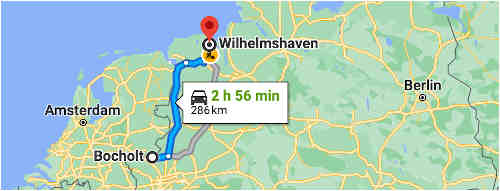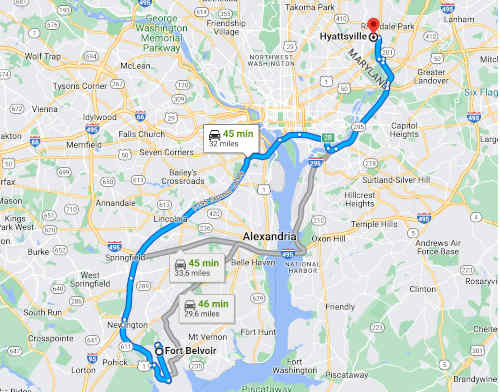Hans-Georg Ostendorp
✸ 12 Juni 1937
† 18 März 2023
Biography
Our Dad, Hans-Georg Franz Ostendorp was born on 12. June, 1937 in Bocholt, Westfalen, the third of four (and eventually seven) children. A small part of the already small Ostendorp family remains in that area, descendants of mercenaries that arrived from the Netherlands (hence, the distinctly Dutch spelling of the name) during the revolutions of 1848. Shortly after the start of World War II, the family moved to Wilhelmshaven, Germany’s largest and most important submarine port, situated on the Jade Bay of the North Sea. Due to asthma, he lived for some time in the Black Forest region of southern Germany, but considered Wilhelmshaven his home town.
His early years were fraught with hardship. His own father left the family to join the army during the war, despite being exempt from military service. Fighting in France, then the Soviet Union, he was killed in Belarus during the retreat from Stalingrad in 1943. His mother was compelled to work in a factory for the war effort and the four children were raised part time by his mother (Helene), his grandmother (Hedwig Rath), and an orphanage. During the war, the city was a frequent target of Allied bombings due to its importance as a submarine port. Dad was known for keeping his suitcase packed and sleeping with his shoes on so that he could rush to the bunkers at the first sound of the air raid sirens. Despite the trauma of the experience, he preferred, when recounting those events, to talk about the challenges his grandmother had keeping her potatoes planted underground, as her garden was damaged by bombs on several occasions.

Born in Bocholt, right near the Dutch border, Dad moved with the family to Wilhelmshaven on the North Sea during the war.
When the war finally ended, he lived through the experience of rebuilding in the British occupied zone. Scuffling with British soldiers, stealing coal and supplies (that were bound for France) from trains stopped at the main station, and working clean up and restore damaged buildings were part of everyday life, in addition to schooling that attempted to undo the damage of the previous regime. Dad took his studies seriously, displayed an aptitude for math and working with his hands, and eventually decided to emigrate to America with the rest of his family in 1955. Working odd jobs upon arrival in Cliffside Park, NJ including those of a bowling alley pinsetter and a truck driver, Dad learned his English on the streets while trying to establish himself in an entirely new country.
His conscription in 1956 (despite not yet being a citizen) ended up being a life-altering event. Stationed at Fort Belvoir in Virginia, Dad displayed yet another impressive aptitude, this time for drawing. The Army assigned him to be a cartographer, where he drew out maps that included several sensitive locations. The recollections he would share about the Army mostly recalled mundane daily routines, but by his telling, the Army finally caught up with his status as a noncitizen at the end of his service. Declining an extension to his service in exchange for a fast-track to citizenship, Dad found himself an honorably discharged bilingual immigrant cartographer in northern Virginia, far away from the rest of his family.

Career demands took him from Fort Belvoir to Hyattsville.
Undaunted, he eventually found a place at Aerolab, a relatively young aerospace testing equipment company in Hyattsville, MD, as a machinist and draftsman. Living in northern Virginia and working in Maryland, he eventually got married, received his citizenship, and welcomed children Vincent and Tammy into the world. While the marriage unfortunately did not last, Dad’s career continued advancing at a furious pace, taking on more responsibility and progressively larger roles in engineering, design, and management. He moved to Maryland in the early 1970s and established himself as one of the leading experts in the field of wind tunnel and pyramidal balance design and production, traveling internationally numerous times throughout the decade to oversee the installation and calibration of Aerolab test equipment.
His experience internationally led him to explore internationally in his free time as well. He was particularly taken with Taiwan, where he visited several times both alone and with friends and co-workers. It was there that he met my mother, and after dating long-distance (often making phone calls despite a twelve hour difference between Maryland and Taipei) they were married in February 1981. Moving to Savage, then Scaggsville, they raised my brothers and I and enjoyed a quiet suburban life. With ample time and space, Dad was able to cultivate many hobbies: woodworking, landscaping, home improvement, fitness, etc., leaving a solid legacy in wood, concrete, and brick all throughout the house and yard. Despite a reputation for very hard work, Dad was known just as much in his later years for his lighthearted and gentle nature, as well as a goofy, slapstick sense of humor.
During his time in Scaggsville, he had ample opportunity to indulge his love for home improvement projects. Among his most notable: the back deck, built on a three-hexagon motif and topped with a dual-level pagoda styled gazebo, the octagonal fountain garden, the playground (which later evolved into a castle, then a tool shed), designing and finishing the basement (including constructing the matched bookcases), gutting and redesigning the master bedroom side of the upstairs to create an additional bedroom, extending the garage out towards the backyard, doubling the size of the kitchen, and designing and building beautiful bookcases for the family room, perfectly sized to fit between the walls and the fireplace. All of the work was done by hand (including hand-digging the foundations for the extensions to the house) and was designed with the same precision that went into his aerospace engineering work.
After his retirement from Aerolab in 2019 after nearly sixty years of service, he spent his remaining years enjoying his hobbies and focusing on self-improvement, both physically and mentally. He enjoyed excellent health throughout his golden years right up to a diagnosis of interstitial lung disease. Despite a severe limiting of his physical activity, his mind continued to be creative and his heart continued to be very strong, both in a physical and emotional sense. While the situation was dire, he continually displayed his strength and determination, including re-learning how to walk only weeks before the end and showing that no matter the circumstance, life was worth living and moreover, worth fighting for. In the company on his loving family, and after giving every ounce of effort he had, he moved onto his next project on 18. March 2023 in Columbia, MD. In order to remain close to family, Dad's final resting place is in his own home, where for 35 years he left a legacy in wood, steel, stone, and blood. It is here that he will keep us company and offer us inspiration forever on.
Obituary
Hans-Georg Franz Ostendorp, a beloved husband, father, grandfather, and friend, passed away on March 18, 2023, at the age of 85. Born on June 12, 1937, in Bocholt, Germany, to Johann and Helene (Grünwald) Ostendorp, he was raised in Wilhelmshaven, Germany and emigrated to the United States in 1955.
Hans-Georg served honorably in the U.S. Army from 1956 to 1958, and became a naturalized citizen in 1960. Shortly thereafter, he welcomed son Vince and daughter Tammy. In the early 1960s, he began his long and storied career at Aerolab, where he worked for nearly 60 years. During his tenure, he gained a reputation as a highly respected engineer, known for his technical expertise, attention to detail, and strong work ethic. He mentored many young engineers over the years and was widely regarded as an outstanding mentor and role model. Hans-Georg was recognized as one of the world's foremost experts on pyramidal balances, and frequent requests for his consulting expertise kept him busy well into his retirement years.
While on a trip to visit an Aerolab client site in Taiwan, Hans-Georg met the love of his life, Yu Ching (Emma) Hsaio, whom he married in Taipei on February 3, 1981. Together, they made their home in Laurel, MD and welcomed three sons, Hans-Dieter, Jürgen, and Günter.
Hans-Georg was an accomplished woodworker, eagerly taking on home improvement projects that would be daunting even to an experienced craftsman. Over the years, he constructed several additions to the family home, continuing his most challenging projects well into his 70s. He also enjoyed working outdoors, taking pride in the beautiful and welcoming landscapes that he created. Always extremely physically fit, he regularly accompanied his sons to the gym, where he never failed to impress those around him with his considerable strength. He was also a talented vocalist, and particularly enjoyed the music of Englebert Humperdinck.
Hans-Georg's proudest achievement of all was his family, and he was happiest when spending time with his wife and children. He is survived by his beloved wife of 42 years, Emma; his daughter, Tammy (George) Forristall; his sons, Hans-Dieter (Courtney Carter) Ostendorp, Jürgen Ostendorp, and Günter (Katie Klebba) Ostendorp; his grandsons, Nathan and Nicholas Forristall; his siblings, Walter (Marianne) Ostendorp, Elsbeth (the late Herbert) Reineke, Udo (Sandra) Steudtner, Eva-Marie (Ismail) Narin, and Karin (Frank) Reap; and countless other family members and friends who will miss him dearly. He was preceded in death by his parents, his son George Vincent Ostendorp, and his sister Erika DeCarlo. A private Celebration of Life will be held later this year. Contributions in his memory may be made to the Pulmonary Fibrosis Foundation (pulmonaryfibrosis.org)
Hans-Georg will be remembered as a devoted husband and father, a brilliant colleague, and an expert craftsman. His warmth, generosity, and excellent sense of humor will be greatly missed by all who knew him.
